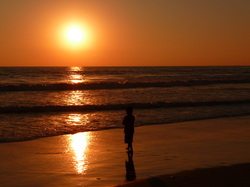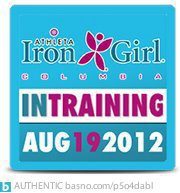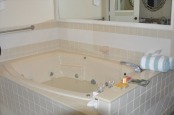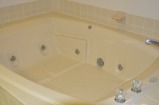
In my personal journey in dealing with my husband's life-threatening brain disorder, I find myself torn between wanting to look to my physicians for "expertise" and "hope," while also being aware of the limitations of medicine and my need to define my own reality... my own story.
It is an interesting perspective to be a consumer of healthcare and practitioner within healthcare at the same time. I've been reading, with avid interest, the differences between the medical model and patient-centered model, as defined within "Escape Fire's" movie and facebook page (that is where all the "expert information" is, right??). As the authors describe, the patient-centered model requires a shift from "physician dominant," to "physician collaborates:" From "care is disease-centered," to "care is quality of life centered;" From "physician does most of the talking" to "physician listens more and talks less."
As I read various related literature, like "The Four Habits" that was created by the great folks at Kaiser Permanente, I think about tools that help shift this paradigm. As they describe, The Four Habits are: Invest in the Beginning, Elicit the Patient's Perspective, Demonstrate Empathy, and Invest in the End. The goals of the Four Habits are to establish rapport and build trust rapidly, facilitate the effective exchange of information, demonstrate caring and concern, and increase the likelihood of adherence and positive health outcomes. What I find fascinating about this model is that it parallels the framework of a coaching model perfectly!
In coaching, the client is the expert, holding all the wisdom, strength and courage that a capable, wise, and powerful being possesses. A table succinctly describes the four habits and associated skills: "elicit patient concerns;" "ask for the patient's ideas;" "be open to patient's emotions;" and in "investing in the end," "deliver education and diagnostic information and then involve the patient in the decision making process." It reminds me of a dance that is more of an interplay between leader and follower with those roles being flexible and dynamic, rather than fixed and unchanging.
All of this requires a perspective that is quite different from doctor, or nurse, or any other discipline as "expert." It requires a vulnerability that allows us to say: "I don't know everything" and most importantly, I don't know what matters most to my patient. Therefore, while my breath and depth of knowledge is vital, I'm also a learner along this journey of wellness with my patient/ client. Now there's a thought! What impact would it make if we were to start labeling the "patient" "client?" Better yet, how about "health partner?" Whatever term would convey the essence of each individual's wisdom and insight to direct their own health, and their own wellness, even if that includes dying.
There are two resources I use repeatedly in my work with clients: Marilee Adams' "Change Your Questions, Change Your Life," and David Emerald's "The Power of TED." Ms. Adams describes her simple, yet powerful "Choice Map," which helps the reader consider a shift in perspective from judger to learner. It requires us to recognize when we are making judgments about others (which she describes as landing us in the pits) and intentionally shifting that perspective to one of learning and desired outcomes. It's less about blame and who's right or wrong, and more of "what do we want, what assumptions am I making, and what are the options open to us?"
Mr. Emerald describes the empowerment dynamic as moving from victim to creator. As a creator, I have choices in how I deal with life's challenges, and I can seek the help of coaches who can appropriately challenge me to discover my wisdom and help me move toward health and success.
Can we make that shift in healthcare? Can we use our great strength in problem solving and science/ medicine, while also making room for art in more fully engaging our health partner on their journey to wellness? Can we notice and abandon our own egos and judgments, in service to the patient? I, for one, would love to be part of that journey!
I welcome your perspective!




 RSS Feed
RSS Feed
